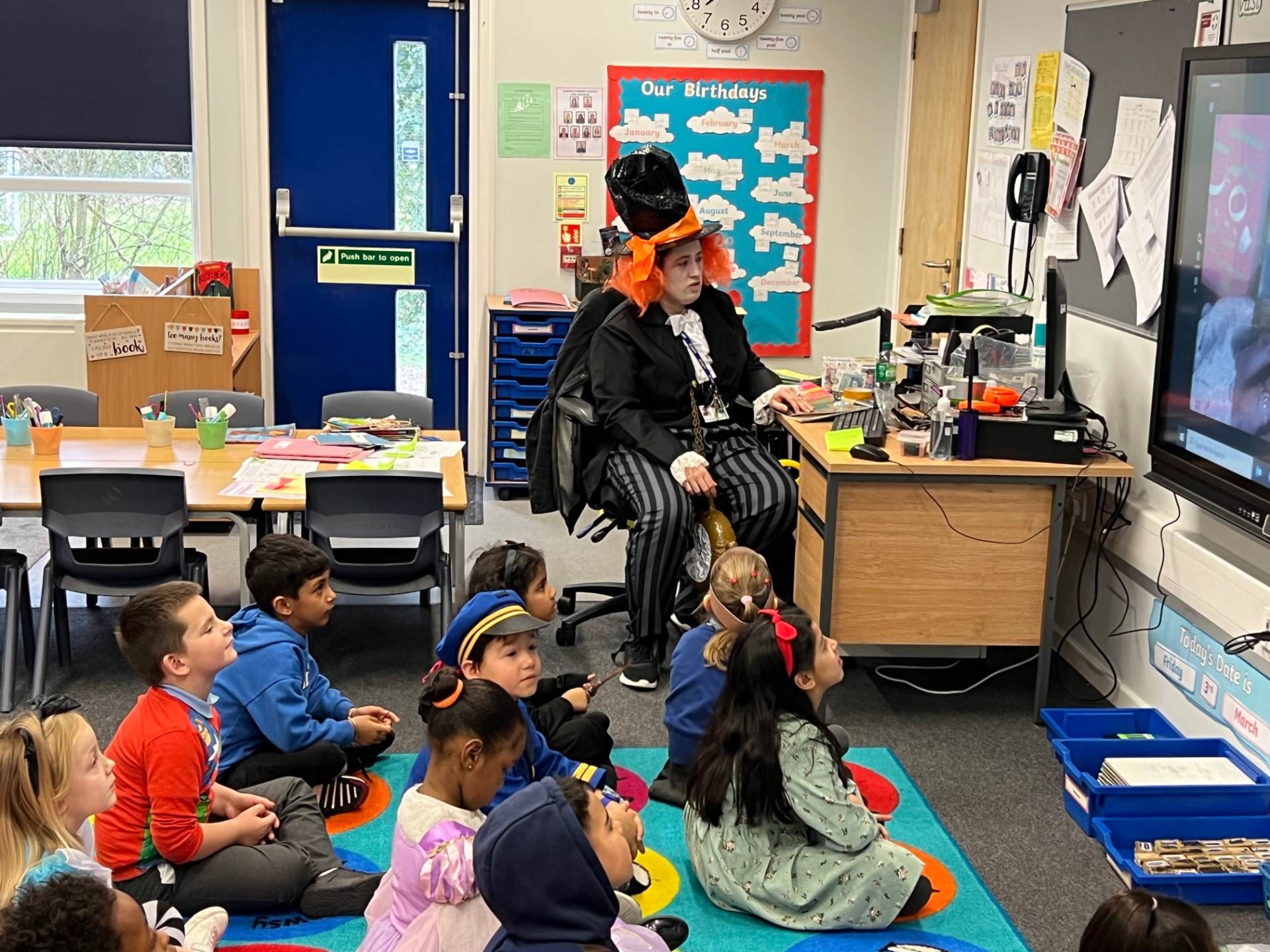Phonics & Reading
The more that you read, the more things you will know. The more that you learn, the more places you'll go.? Dr. Seuss, I Can Read With My Eyes Shut!

English
The English national curriculum (2014) states that:
‘The overarching aim for English in the national curriculum is to promote high standards of language and literacy by equipping pupils with a strong command of the spoken and written language, and to develop their love of literature through widespread reading for enjoyment.’
We believe the exposure of children’s literature within the primary school setting is vital as a rich context for learning; not only within English as a subject but to support building a reading culture throughout the school.
In our writing topics, we aim to use high quality books as a stimulus that offer opportunities for empathy and can aid philosophical enquiry. In these books children see their cultures, families and relationships reflected, as a means of developing the spoken language requirements through debate, drama and discussion using the issues raised through, and within, the text.
Phonics
At Oldfield Primary School, we have adopted Essential Letters and Sounds (ELS) as our phonics programme to teach children how to read and spell confidently. ELS is a systematic and structured phonics (SSP) scheme, validated by the Department for Education, that ensures all children learn the essential knowledge needed to become fluent readers.
Through daily, engaging lessons, children are taught to:
- Recognise letters and the sounds they make
- Blend sounds together to read words
- Segment words into sounds to support spelling
- Read increasingly complex texts with accuracy and confidence
In Reception, phonics is taught as a whole class and pupils who require extra support are then targeted through small group intervention. Similarly in years 1 and 2, the three classes are streamed into four groups so that the learning can be targeted to each child’s ability while retaining the expectation that all children will keep up with the age-related expectations
ELS follows a clear progression, allowing children to build on their learning step by step. Lessons are carefully planned to be fast-paced, consistent, and inclusive, ensuring that all pupils, including those who may need extra support, can keep up and succeed.
Regular assessment helps teachers identify any gaps quickly, so targeted support can be provided when needed. Alongside phonics lessons, children read fully decodable books that closely match the sounds they are learning, helping them apply their skills and develop a love of reading.
We have recently adopted ELS Progress, a phonics catch-up for children in Key Stage 2 who have missed out on the rigour and consistency of an effective phonics scheme. ELS progress is not daily whole class teaching, it is solely catch up that is delivered for specific children in small groups.
By using Essential Letters and Sounds, we aim to give every child a strong foundation in reading and writing, setting them up for future success across the curriculum.
Reading-KS1
In KS1, Guided Reading is whole-class based with an emphasis on speaking and listening. Initially, we are aiming for the children to be able to retell off by heart, sequence and discuss popular and common short stories. We believe an understanding and appreciation of texts needs to be developed early, in readiness for when their decoding skills are good enough to access the written texts themselves.
The ability to memorise stories is vital for our children so they will rehearse, add actions and perform these stories to their peers. This will support children to develop their speaking and listening skills which, in turn, will help them to become better story writers and ability to inference. Lessons follow a two week cycle:
Week one will involve introducing the story and expanding their vocabulary by explicitly highlighting new words, synonyms and their meanings. By the end of this week, children will know the story inside out.
Week two will include an opportunity for children to talk about the text chosen and their understanding of the story or topic. Children will discuss literal understanding and deeper layers of meaning such as inferring from the text and identifying themes, character traits and motivations.
As children develop their word recognition through phonics lessons, they will begin to access more written comprehension activities as they progress through the key stage.
Discrete Teaching of Reading-KS2
In Key Stage 2, Reading comprehension is taught in addition to other English lessons as a whole class model where the majority of children follow the same text. Themes, ideas and inferences are discussed as a whole class and work is tailored to different abilities where necessary. This means that all children are able to explore the rich ideas in quality literature from books that they may not be able to access on their own.
Class Libraries
Each class has a large set of age appropriate fiction and non-fiction books that can be borrowed by the children and read at home. The expectation for all children is that they read daily and parents record this in their school planners.
In addition, the Hounslow Library Service send a regular set of books each term that support the topics covered in each class. These are used, in class, to research areas of the wider curriculum.

